Concept
Last modified by Richard Kreissig on 2023/09/07 10:08
This is a rough concept of the aspects that should/can be covered in this project.
SCCharts Railway Controller
- SCCharts Railway Controller
The Controller from the previous railway project was nice, but you can surely make a better one.
Goal is to develop a modular controller using inheritance that can schedule as many trains as possible (max. 11).
Modular means that you should be able to write unit tests or do model checking for small components, e.g. a point or a station.
For this project, all previous documentation and SCCharts are available for inspection.
The environment simulation developed in the Railway Project 2017 should be used as an interface. - Railway Simulation and Visualization
At the end of the project the controller should be testable with the existing environment and your modular controller inside KIELER or KEITH.
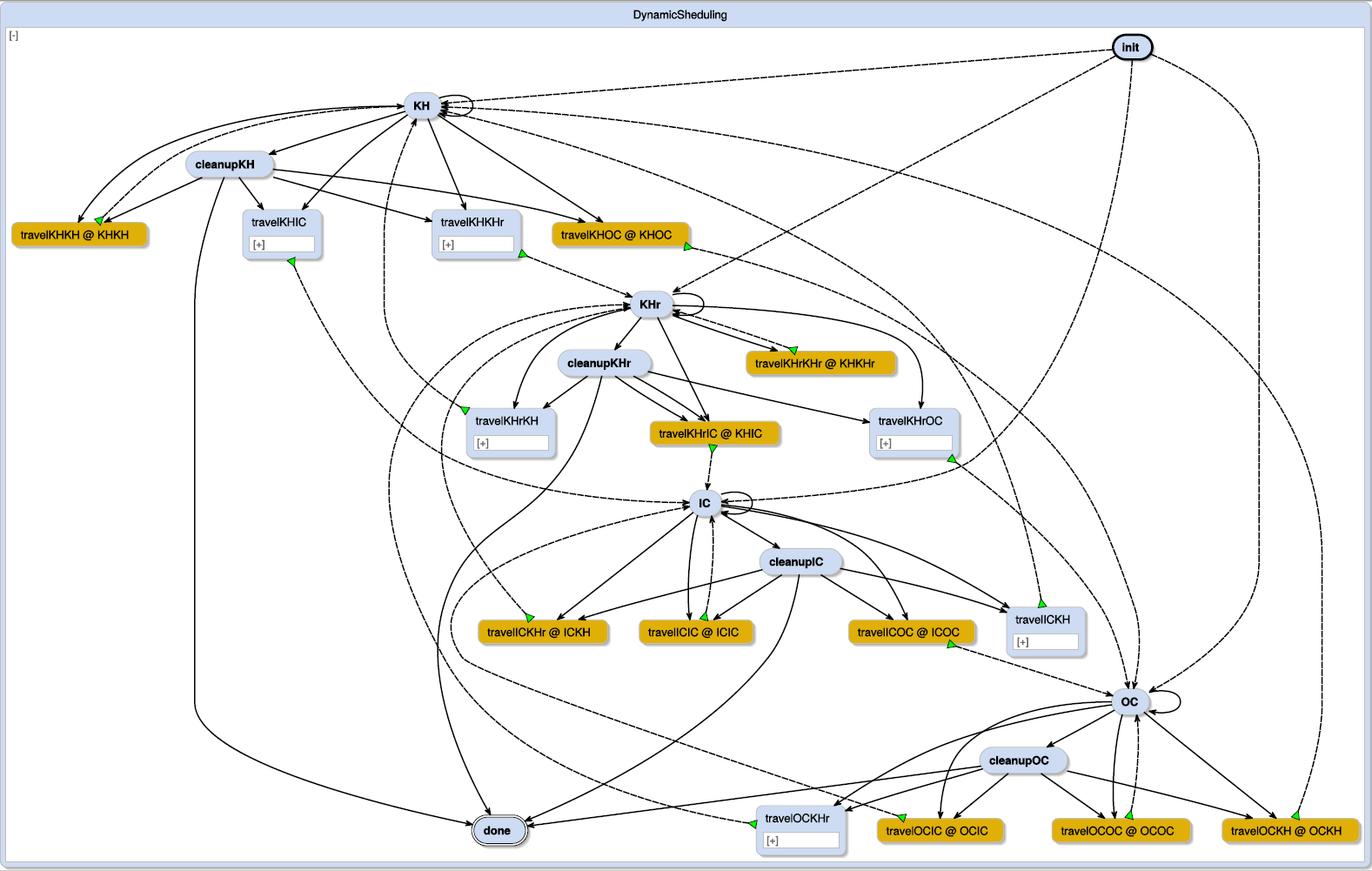
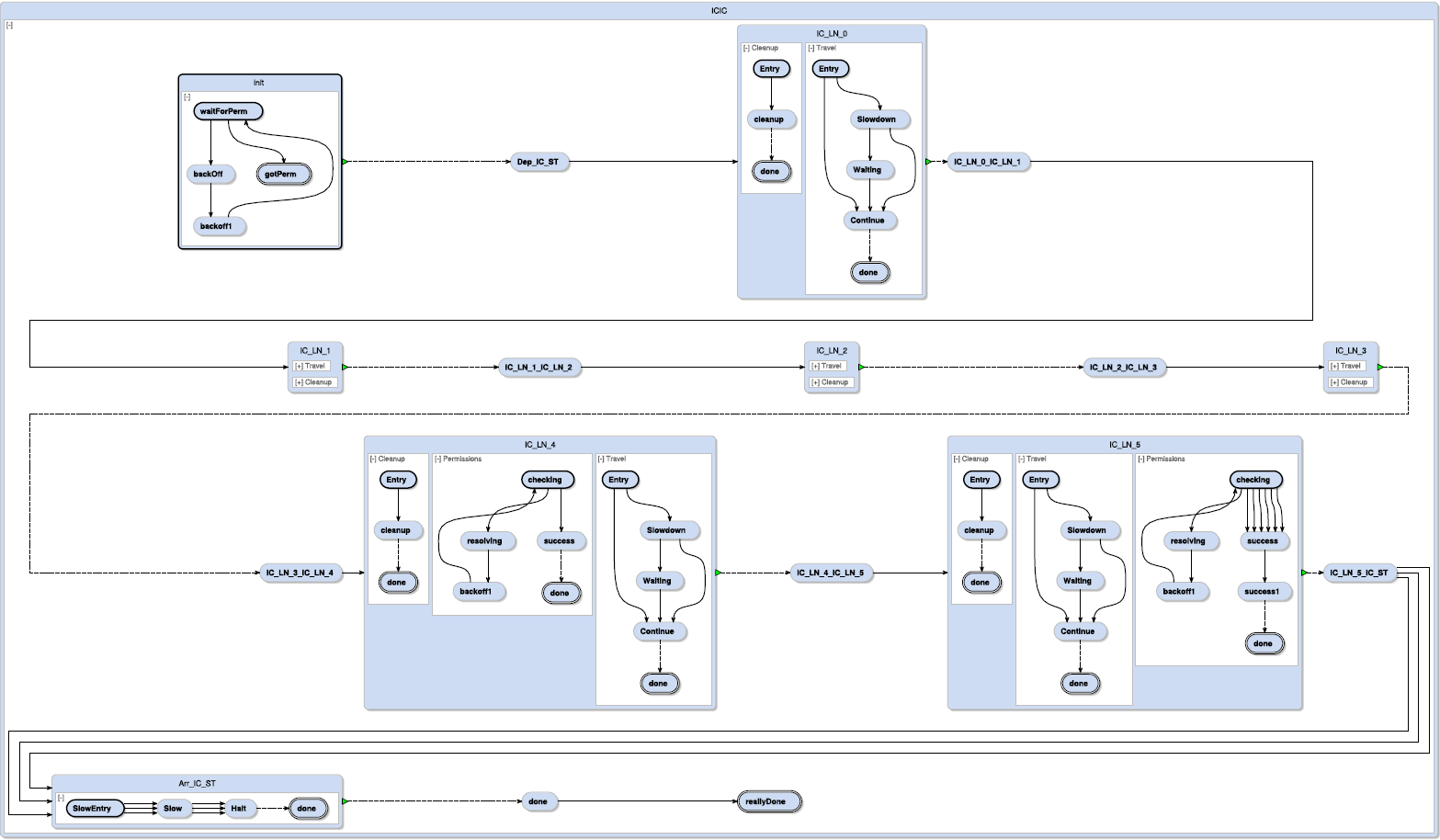
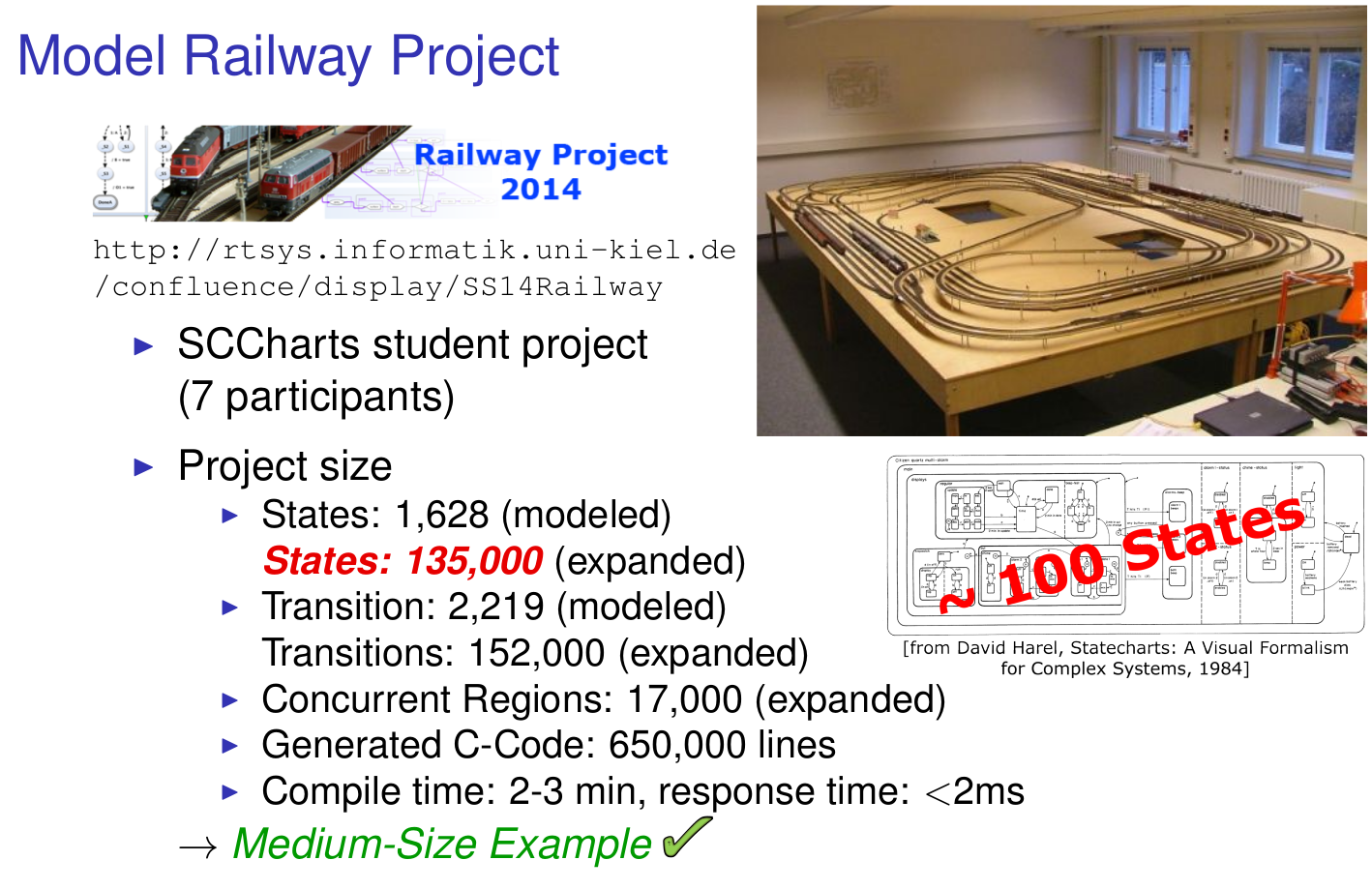
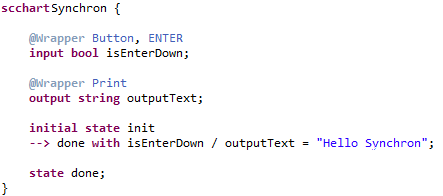
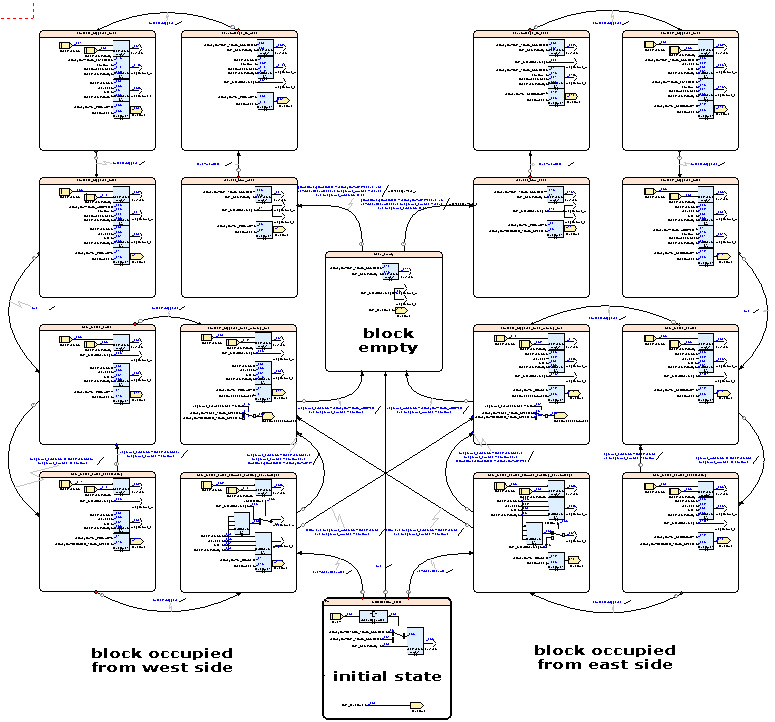
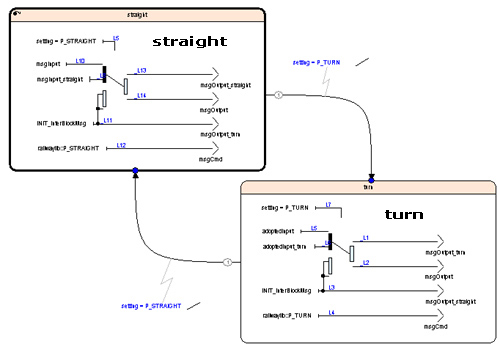
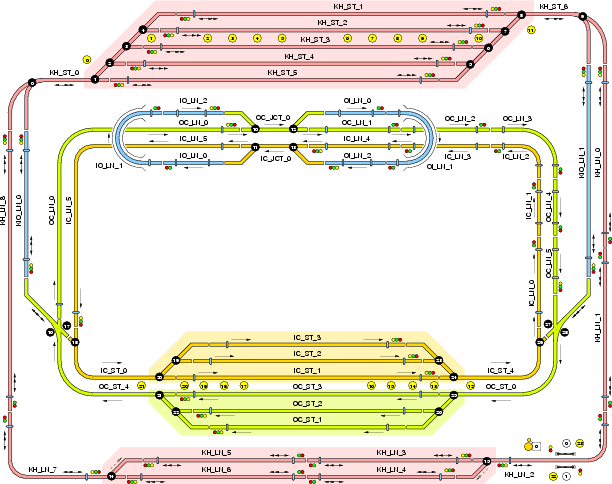
Optional / Additional Aspects:
- Railway Modeling DSL
Philip Eumann developed a DSL for railway control. Use it.
- Lighthouses
Extend your controller to be able to control the two mini-lighthouses in H0 scale that were build In a previous student project
They should be included in the railway installation physically.
- Train Tracking
Develop a method to identify the positions of the trains from start, giving the controller the information which train is where on the track.
- Dataflow or Hybrid Model
Develop your controller or part of your controller in SCCharts dataflow.
- Distributed SCCharts
Split up your SCChart model to be executable on independent segment controllers. Each Raspberry Pi should only run the code for the components it is controlling.
- Multiple Controllers
Enable the railway system to support the execution of multiple controllers at once.
- Model Checking
Use model checking to validate your controller.